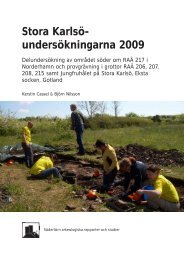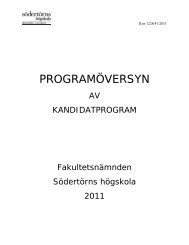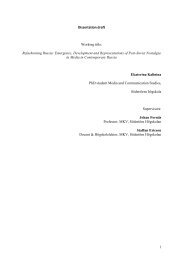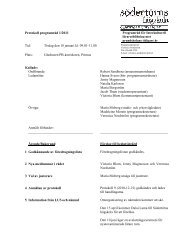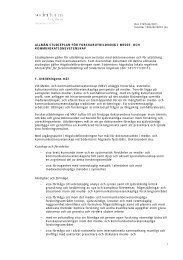CIVIL SOCIETY IN PEACEBUILDING - A Case Study Analysis of ...
CIVIL SOCIETY IN PEACEBUILDING - A Case Study Analysis of ...
CIVIL SOCIETY IN PEACEBUILDING - A Case Study Analysis of ...
Create successful ePaper yourself
Turn your PDF publications into a flip-book with our unique Google optimized e-Paper software.
increase <strong>of</strong> ethnic, clan and faith-based organizations in Africa and among African diasporiccommunities (Chazan 1992:283). Ethnic or faith-based organizations are detrimental to civil societybecause instead <strong>of</strong> connecting, they disconnect groups and instead <strong>of</strong> bridging social relations, theyencourage and exacerbate differences by reinforcing inner-group bonding on the basis <strong>of</strong> exclusiveidentities. Their structure may not always bring positive achievements towards relationship building.Associations that do not maintain an open system <strong>of</strong> recruitment because gaining membership arebased on particular attributions <strong>of</strong> criterion such as religion, ethnicity or prohibit their members fromjoining other associations (Hadenius & Uggla 1996:162). The fourth and critical attribute is the ability t<strong>of</strong>orge alliances with other groups that have different objectives and goals (Chazan 1992:287).7.2 History <strong>of</strong> Civil Society and Philosophical RootsThe history <strong>of</strong> civil society and its conceptual debates derive from different roots and by a number<strong>of</strong> important political philosophers like John Locke (1632), Alexander de Tocqueville (1805) andAntonio Gramsci (1891). The scholars have contributed to the discourse and definitions <strong>of</strong> civil society.John Locke was first in ‘modern’ time to state that civil society is a body in its own right, separatefrom the state. He argued that people form a community which their social life develops and in whichthe state has no say. Locke referred to the sphere as pre-or-un-political and where the first task <strong>of</strong> civilsociety is to protect the individual- his/hers rights and property- against the state and its arbitraryinterventions (Sriram 2008:56).Alexander de Tocqueville stressed even more the role <strong>of</strong> the independent associations as civilsociety. He saw these associations as schools for democracy in which democratic thinking, attitudes andbehaviour are learned, also with the aim to protect and defend individual rights against potentiallyauthoritarian regimes and tyrannical majorities in society. de Tocqueville also stated that theseassociations should be built voluntarily and at all levels (local, regional, national). Antonio Gramscifocused more on civil society from a Marxist theoretical angle. According to him, civil society containsa wide range <strong>of</strong> organizations and ideologies, which both challenges and upholds the existing order. Thepolitical and cultural hegemony <strong>of</strong> the ruling classes and societal consensus is formed within civilsociety. Gramsci’s ideas influenced the resistance to totalitarian regimes in Eastern Europe and LatinAmerica (Lewis 2002:98).Two broad conclusions can be drawn from this short overview <strong>of</strong> the fundamental principles <strong>of</strong> thenotion <strong>of</strong> civil society. First, different meanings and interpretations <strong>of</strong> civil society have influencedtheoretical debate. Second, civil society has been an almost purely Western concept, historically tied to15



